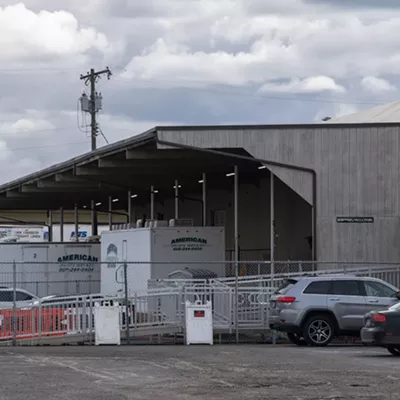Two years ago, following what was called the Horizons process, the City Council adopted a new Comprehensive Plan. It appeared that citizens had finally had enough of blight, sprawl and unplanned growth. They opted instead for a predictable growth plan that would be good for economic development while taking a huge step toward protecting the integrity of the city's neighborhoods. The plan is called "Centers and Corridors," and one of the things it does is protect neighborhoods from what might be termed "strip mall creep." Most of you have likely noticed that there are areas of town that are downright unpleasant to visit: Division, Francis and Sprague come immediately to mind. These are blighted, unpleasant areas even if you are traveling in a car. Perish the thought of attempting to walk or ride a bike here! Why build more of the same, especially when it appears to be marching toward your neighborhood and it looks like the idyllic little spot you've enjoyed for years is about to become a parking lot?
There is an amendment process to the Comprehensive Plan, and Nevada Properties has jumped through the hoops to get itself before the City Council with a Comp Plan amendment. This amendment would change the zoning of a parcel at the northeast corner of Nevada and Lyons from "Office" to "General Commercial." But since we now operate under a comprehensive plan, if that parcel receives a zoning change, other similarly zoned parcels in the city get rezoned, too. And that's not all. There is language in this Comp Plan amendment that says when traffic volume exceeds 20,000 cars per day at any signalized intersection on a principal arterial, the adjoining parcels become immediately eligible for upzoning to "General Commercial," excepting parcels that are already zoned exclusively for residential use.
As this proposal wound its way through the amendment process, an interesting thing happened: Almost everyone who had the responsibility to examine it said it was a bad idea. The Land Use Committee of the Community Assembly recommended against it. Then the City's Planning Department did likewise. Next came the City Plan Commission. Three Neighborhood Councils and some of those that had been part of the original Horizons process chimed in. There was only one public comment in favor of the proposed change.
Bill McDonough, who visited our fair city last year, left this tidbit of wisdom with us: If your intention is to go to Canada and you're heading toward Mexico at 100 miles per hour, it doesn't do you a whole lot of good to slow down to 20. The Comprehensive Plan adopted two years ago gave a clear signal that Spokane was turning around. No longer were we going to diminish what is regularly touted as our greatest economic development asset: the natural beauty of the area in which we live. We stated quite clearly that we would henceforth protect our neighborhoods, enable ourselves to make our lives less car-dependent and to streamline and facilitate development by carefully defining where new growth would occur. Unfortunately, not everyone has embraced this change. Some developers and, apparently the City Council, are proceeding with business as usual. Unless substantial public support for the Comprehensive Plan is generated at next Tuesday's City Council meeting, it is quite likely that this amendment to the Comp Plan will be adopted. Five years and thousands of hours of public participation aimed at turning this city around, economically and aesthetically, and $7 million spent to generate, define and adopt a Comprehensive Plan will be tossed aside.
The reason the City Council appears to be ready to adopt this amendment is familiar: jobs. Anything that brings another job and expands the tax base of this poor and economically depressed city is worthwhile and therefore must be approved. What this argument misses is the fact that the type of economic development we generate will determine the quality of life in the city. Members of the creative class, an essential component of any robust economy, will only be attracted to a livable community with a good quality of life. We can either set our standards high and build toward that standard, or we can act more promiscuously and take on any developer who offers the promise of a job. What is particularly galling about this particular zoning change is that there is no specific development proposal in place for the property. Rather, the City Council will simply have raised the speculative value of a developer's property -- and at the expense of the quality of life and property values in the adjoining residential neighborhood.
September 2 is a turning point for Spokane. We can either stick to the high standard that we have adopted via the Comprehensive Plan or we can continue business as usual, with the predictable result of low-wage jobs, ever-expanding sprawl and compromised neighborhoods.
The Spokane City Council meets in the Council Chamber on the lower level of City Hall, 808 W. Spokane Falls Blvd., at 6 pm on Tuesday, Sept. 2. Public testimony regarding proposed legislation is permitted. Richard Rush is a member of the Cliff-Cannon Neighborhood Council.
Publication date: 08/28/03















